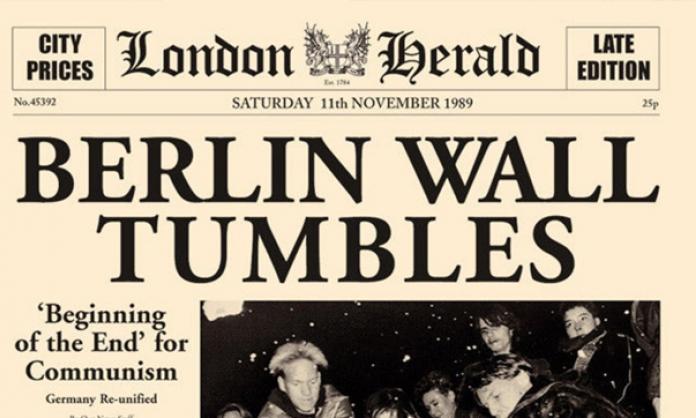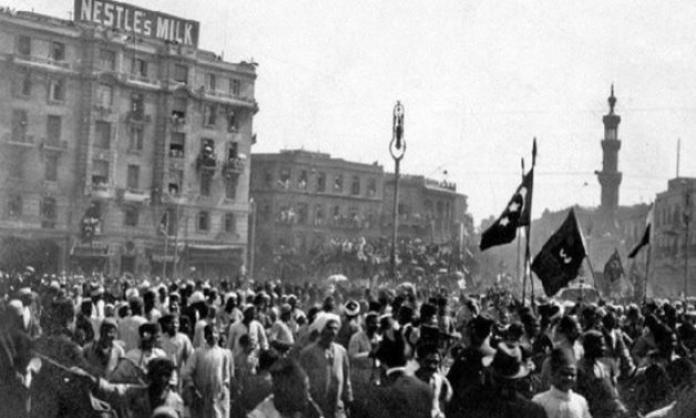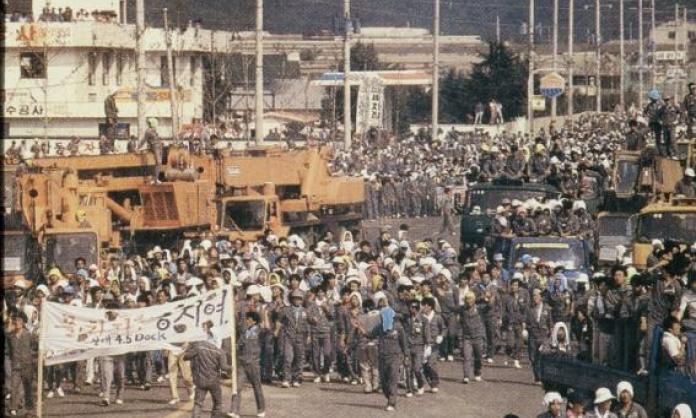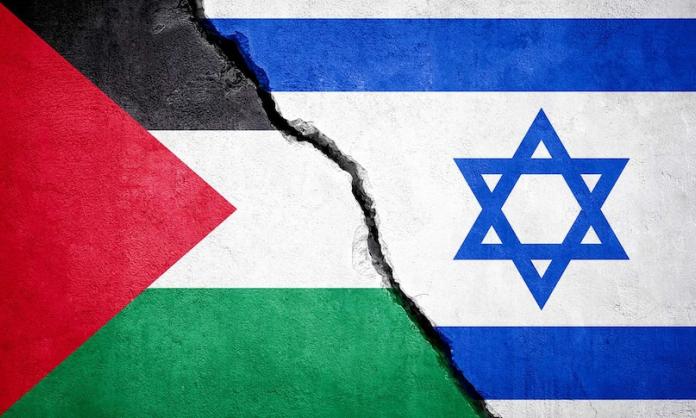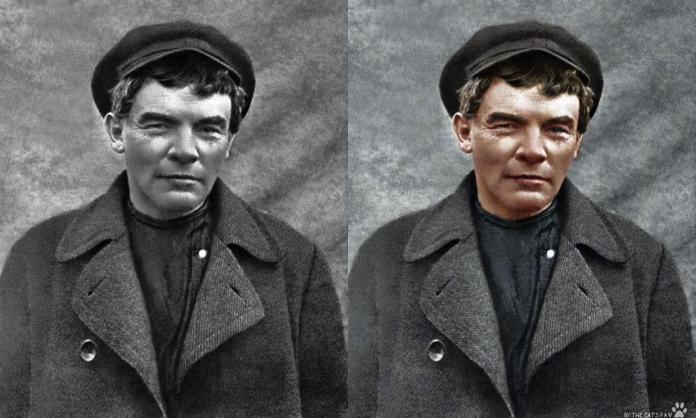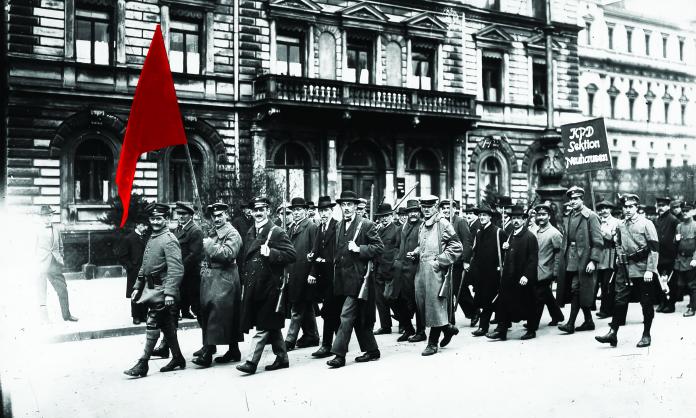The fall of the Berlin Wall and the subsequent collapse of the authoritarian Stalinist regimes across Eastern Europe and eventually Russia were hailed as the triumph of free market capitalism. Those sections of the left that had looked to Stalinist Russia as some progressive alternative to Western capitalism were thrown into disarray and demoralisation. Meanwhile, the reformist labour and social democratic parties deepened their embrace of neoliberalism.
Only the small revolutionary socialist forces that had no illusions in the Stalinist regimes as embodiments of socialism stood their ground as “the end of history” was heralded – the end of class struggle and a new peaceful world order in which Western bourgeois democracy would increasingly be the norm.
In the 30 years since, we have had ever more murderous wars, the undermining of basic democratic rights, a vicious one-sided class war by the bosses to drive down living standards and, in country after country, the rise of the far right. Even before 1989, the working class movement in the West was in serious retreat. The explosive radical struggles of the late 1960s and 1970s had been pushed back.
While Margaret Thatcher in Britain and Ronald Reagan in the US are notorious for vicious attacks on workers, the social democratic and labour parties, often in alliance with the rightward moving Communist parties, played a decisive role in shoring up capitalist rule in the face of the collapse of the post-war economic boom in the mid-1970s.
In Britain, Callaghan’s Labour government, in collaboration with the trade union bureaucracy, imposed austerity measures that prepared the ground for Thatcher’s full-throated assault on workers, which culminated in the defeat of the heroic year-long miners’ strike. In France, it was Francois Mitterrand’s “socialist” government that carried through the neoliberal offensive.
In Australia, workers had waged a stubborn resistance to the attacks of Malcolm Fraser’s Liberal government. It was left to the Hawke-Keating Labor government with its Prices and Incomes Accord with the Australian Council of Trade Unions to impose neoliberalism. Under the Accord, vital public services were privatised. The profit share of national income rose from 18 percent to 23 percent, and the wages share fell from 61 percent to 56 percent. The strong rank and file workplace organisation that had led major struggles in the boom years was badly eroded.
The Accord was not devised by the right wing of the labour movement but by the Communist Party and its Labor left allies in previously militant unions such as the metalworkers. It was sold to often sceptical militants as a way forward to socialism. The demoralised rump of the Communist Party eventually dissolved in 1991. Many of its members had jumped ship to join the ALP – but not its left wing.
When rank and file workers did resist during the Accord years, the union leaders acted as a police force to get them back to work. Small militant unions were condemned by the ACTU and forced into line. In the case of the furnishing trades, the union was forced, under threat of deregistration, to surrender a pay rise it had won for glaziers. The militant Builders Labourers Federation was deregistered. In 1989, the government, with the backing of the ACTU, used the air force to break a strike by pilots.
These displays of resistance showed that, while the working class movement was on the back foot, the class struggle was far from over. If a militant socialist organisation with some social weight in the working class had existed during these difficult years, it could have found a resonance among the minority of militants still prepared to fight.
By the early 1990s, the capitalist triumphalism of 1989 had taken a significant hit, and resistance repeatedly erupted. In March 1990, a bitter riot in central London against Thatcher’s hated poll tax broke the back of her regime. In May 1992, concerted rioting swept Los Angeles in response to the police killing of a Black man, Rodney King.
The bloody slaughter carried out by the US during its war on Iraq in 1991 put an end to any idea that capitalism had entered a new peaceful era. It provoked a significant protest movement worldwide and in Australia and led to something of a revival of the left.
Then came the sharp recession of 1992-93, which exposed the idea that free market fundamentalism had resolved capitalism’s inherent contradictions.
In November 1992, 800,000 Victorian workers went on strike, and 150,000 mobilised in an angry march in Melbourne in response to savage cuts introduced by the newly elected Kennett Liberal government. Stop-work meetings and smaller strikes were held in every corner of the state. Kennett was rattled.
But then the Trades Hall secretary, the former leading Communist John Halfpenny, offered the government a “Christmas truce”. A campaign that had the potential to reverse the attacks was left to wither on the vine. This was a recurring pattern over the following decades. Repeated outbreaks of resistance were not consolidated and pushed forward because of the sabotaging role of the reformist forces – the trade union bureaucracy, the Labor politicians and their middle class liberal allies – and the lack of a strong revolutionary socialist party to offer a coherent alternative leadership.
In the late 1990s and early 2000s, an inspiring movement against corporate globalisation developed. Meetings of the core international bodies of world capitalism – the International Monetary Fund, the World Trade Organization, the World Bank – were besieged and blockaded by militant protests, from Seattle to Genoa to the World Economic Forum in Melbourne in September 2000.
Then in 2003 the largest demonstrations in human history swept the world in the lead-up to George W. Bush’s invasion of Iraq. More than 200,000 anti-war protesters took to the streets of Melbourne and up to half a million the following day in Sydney. But without an effective radical leadership, the movement was not sustained.
All the contradictions of the neoliberal order were brought to the surface by the global financial crisis of 2008. Tens of millions of workers lost their jobs and were thrown on the scrapheap. In the US, “the land of the free”, homelessness soared as millions were evicted when the banks foreclosed on their home loans. Austerity reigned as capitalist governments, both centre left and conservative, imposed the burden of the crisis on workers and the poor while bailing out the banks and the major financial institutions, which were at the heart of the problem, to the tune of trillions of dollars.
The subsequent economic recovery was slow and drawn out, and some of the weaker economies, such as Greece, have never recovered from poverty and recession. Profits soared and the super-rich became ever richer. But for most workers, stagnant wages and job insecurity were the new norm.
Even in Australia, which escaped the worst impact of the financial crisis, wages have been suppressed for years, basic services like health care, education and public transport have deteriorated, and unemployment entitlements remain at starvation levels. Yet year after year the wealth of the billionaires who dominate the Australian economy has surged.
The long drawn-out economic and social crisis has fuelled political turmoil and undermined the hold of the mainstream neoliberal centre. The main beneficiaries of the rising discontent so far have been the far right – Le Pen in France, Bolsonaro in Brazil, open Nazis in the German parliament, Wilders in the Netherlands, Modi in India, Trump in the US and now Boris Johnson in Britain.
As though all that was not threatening enough, there is also the accelerating climate catastrophe, the sharpening imperialist rivalry between the long dominant US empire and a rising China and the potential for another, deeper recession.
Thirty years after the collapse of the Eastern Bloc, we live in an increasingly dangerous and brutal capitalist world that offers nothing for the mass of humanity. There is a desperate need for a fighting socialist mass movement that offers hope for workers and the oppressed. This whole capitalist system must be overthrown and replaced with a new democratic world order in which the wealth we all create is used to benefit the great majority rather than a tiny cohort of billionaires.




